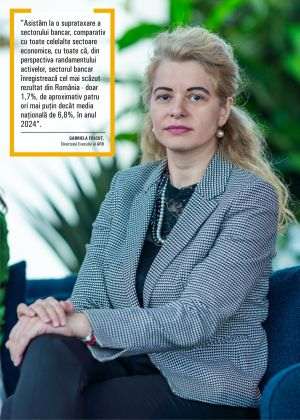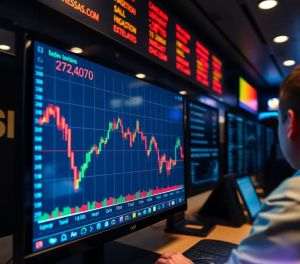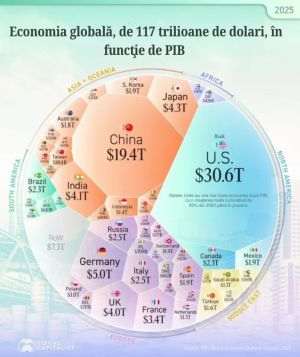Reporter: The funds managed by Karoll Capital Management focus on investments in the Emerging Europe capital markets. What do you think are the main opportunities offered by the markets in this region compared to those in Western Europe or other developed markets?
Georgi Georgiev: Karoll Capital Management operates three equity funds that invest in Central and Eastern Europe. Our presence and track record in the region has been for more than 20 years; it started with the creation of our first mutual fund - Advance Invest. Its focus was to benefit from the expected then accession of Bulgaria and Romania in EU.
Unlike what some global investors may imagine, the region of Eastern Europe is quite substantial: 200+ mln population, 2.5+ trln GDP, 4000+ listed companies, 1+ trln market capitalization. Yet, the region is still overlooked by the global investment communities. Nonetheless, the upside momentum is strong - it is2nd best performing global region in the last 3Y with +7.2% return p.a., only behind North America, and this is driven by specific regional catalysts.
As our region is turning into the nearshoring hub for the developed countries, the markets should benefit from this trend. Emerging Europe is still quite undervalued compared to their Western peers (on average 40% discount vs. global EMs). Meanwhile, the economic and companies' earnings growth is twice higher those in developed Europe. Dividend yields are also much higher (5+%).
The presence of international investors in the region is low, and any substantial inflows would give a boost to the markets. Furthermore, the strengthening of the middle class and the improvement of the investment culture should also contribute to a positive development.
Reporter: Among the Emerging Europe markets in which Karoll Capital Management funds invest is Romania. In your opinion, what are the main strengths or opportunities presented by the leading companies on the Bucharest Stock
Exchange?
Georgi Georgiev: Advance Invest is actually the first mutual fund in Bulgaria that started investing abroad. And the first cross-border destination was neighboring Romania. The strategy of the fund was to benefit from the accession of both countries in EU. At that time the markets looked quite alike in their development, but they also complemented each other in terms of sector allocations. The presence of energy and utilities companies in Romania was what we liked the most. The solid dividend policies and the strong support of the market by the local pension funds were also important factors.
Reporter: What investments do Karoll Capital Management funds hold on the Bucharest Stock Exchange (in terms of companies or sectors)? What were the reasons for choosing these investments, and what prospects do you foresee for them?
Georgi Georgiev: Not a big surprise here - almost all of the blue chips. They are the most liquid names. Although we are а long-term investor, we prefer to stick to these names and it has paid off quite well. We had a bias to the energy sector at the beginning. Our fund was among the few that took a position in Fondul Proprietatea way before its IPO. The Romanian blue chips are stable companies - leaders in their sectors with proved dividend record. Meanwhile, they trade at reasonable market multiples compared to international peers. Overall, at risk reward level we feel quite comfortable with our investments in Romania.
Reporter: What do you consider to be the primary vulnerabilities of the Romanian capital market?
Georgi Georgiev: The political environment - it is always challenging in the Balkans, the historical burden with the communist regime before the 90s and the geographical location - close to a turbulent zone with various conflicts, as we are witnessing in the last few years. Also, the liquidity of the market and the low representation of the real economy on it. The very large holdings of the pension funds may also become a problem one day, as they are sucking out the free float, while increasing their risk exposure and concentration.
Reporter: The valuations of the leading stocks listed on the Bucharest Stock Exchange are lower than those of Western European markets and even lower than those of comparable Eastern European markets (see Note 1). What do you believe are the reasons for this valuation discrepancy?
Georgi Georgiev: Romania and Bulgaria almost always have traded at a discount compared to the other Central and Eastern European markets. Compared to Western Europe the discount is much bigger. We are really overlooked by international investors. Of course, the disbelief in local law enforcement, the quality corporate governance and the liquidity of the markets are among the main reasons. We still have a lot to improve to live up to the expectations of global investors.
Reporter: According to the Federation of European Securities Exchanges (FESE), the Bucharest Stock Exchange is the second largest in Eastern Europe, ranking above the Hungarian and Czech stock exchanges. However, the value of transactions is significantly lower (see Note 2). What, in your opinion, are the reasons for this situation?
Georgi Georgiev: All of these three markets have quite a few names that actually form their turnover. Despite the lower number of traded stocks in Czech Republic and Hungary, the presence of active international investors and high retail base determines significantly higher transactions there compared to Romania. The biggest investors in Romania - the local pension funds - are mostly buy-and-hold positioned and are obviously not active on a daily basis.
Reporter: Following the listing of Hidroelectrica, the likelihood of the Romanian capital market being promoted to the MSCI Emerging Markets category has increased. How close do you think the Romanian market is to achieving this status?
Georgi Georgiev: Based on these positive developments, Romania is getting closer to EM status and should soon start to attract more and more international investor interest based. At Karoll Capital we believe this would be a boost for the market, and are positioned to benefit with our regional Advance investment funds.
Reporter: The current geopolitical climate is characterized by several challenges: the rise of extremist movements in Europe, where economies remain relatively stagnant; tariffs imposed by the Trump administration and retaliatory measures by affected countries, which could escalate into trade wars; an armed conflict on Europe's border; and more. How do you view the macroeconomic prospects of Central and Eastern Europe in this geopolitical context?
Georgi Georgiev: The environment is challenging. Historically social unrests have led to a change of political leadership. After a period of globalization and openness of the world economy, now we see a shift to deglobalization. Europe is not positioned well for this - laggard in AI and technology vs. USA and China, and at the same time with scarce resources. The conflict with its longtime energy partner has hit the European industry hard. The tiles are moving fast and here comes the chance of CEE in this puzzle - the region could have a greater importance for Europe and benefit from this transition. Geopolitically it will be really tough in next few years, but we believe the common sense will prevail and the region will emerge stronger. The CEE region, due to its proximity, industrial base, and energy independence, is best positioned to benefit from these reconstruction initiatives after the Ukraine war. With a favorable macroeconomic backdrop, significant EU funds supporting growth and solid domestic consumption, the region is well-positioned to deliver strong returns for investors.
Reporter: Thank you!
Note 1: According to Simply Wall Street data, as of February 3, the BET index-the main index of the Bucharest Stock Exchange-had a Price-to-Earnings (P/E) ratio of 9.1x. In comparison, the Warsaw WIG20 index had a P/E ratio of 20.6x, the Prague PX index had a ratio of 18.1x, the SOFIX index in Sofia had a P/E of 16,8x and in Budapest, the ratio was 8x. In Germany, the DAX index had a P/E ratio of 21.5x.
Note 2: According to FESE, at the end of December, the Bucharest Stock Exchange was the second largest in Eastern Europe, with a total capitalization of local companies (excluding Erste Group Bank) listed on the Regulated Market amounting to 45 billion euros. This was higher than the Budapest Stock Exchange (40 billion euros) and the Prague Stock Exchange (33 billion euros). However, the average daily trading volume of local company shares listed on the BVB was 12.6 million euros in December of the last year, compared to 30 million euros in Budapest and 16.6 million euros in Prague. In Warsaw, the average daily trading value was 325.9 million euros. While these values fluctuate month to month, the general trend remains-the Bucharest Stock Exchange is a larger stock exchange than those in Budapest and Prague but has fewer transactions.























































